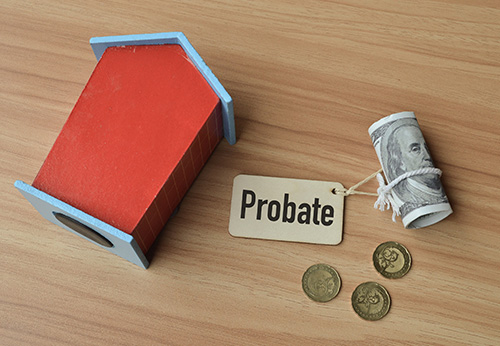What Happens If The Deceased Person Owned Land In Other States?
When a deceased person owns land in other states, the process will depend on the other states’ statutes. Some states will allow you to sell the property while taking care of the probate in Texas. The administrator has that power as long as the other state doesn’t have additional issues. You would just sign a deed and sell it like the property was in Texas. If the state doesn’t do that, then you would have to get an attorney from that state to file an ancillary probate. For example, if somebody passed and lived elsewhere, but had property in Texas, it can be taken care of with the letters from their state. It’s not a problem unless a title company has an issue then if that happens the first step is to see if another title company will complete the transaction without having to involve the Texas Court.
Does All Of A Deceased Person’s Property Always Have To Go Through The Probate Process In Texas?
In Texas, not all of a deceased person’s property has to go through probate. Beneficiary designations on accounts and life insurance policies are not probate assets. The test I use with clients to verify whether an asset does not have to go through probate is to ask if they were able to get an asset switched into their name with just the death certificate. If so, then it’s not a probate asset. If you have to show the letters from the court, then it’s a probate asset.
How Are Creditors Against The Estate Handled Throughout The Probate Process?
In general, we ignore the creditors going after the estate in the probate process. Not to be harsh, but there is no duty to them until after we go to court. The first duty starts with publishing a notice in the newspaper called a notice to creditors. The notice to creditors says, “If you think you have a claim against the estate, contact us here. If you don’t contact us, you are not going to get paid.” There are some other letters that have to be sent as well. If there is a secured creditor, you should let them know. For unsecured creditors, you can send a specific letter if you know who they are. If they don’t respond properly within the time period, they lose their claim. Typically, we get claims from time to time. We show it to the administrator or executor, and they can decide to ignore, decline, or pay it. If they decide to ignore or decline it, it’s up to the creditor to file a claim into the estate. The creditor would file suit into the probate to try to prove it.
Most claims come from credit cards. Unless you were close to the person that passed and you knew for sure that they had a certain credit card that they were paying, we can’t know that for sure it is a valid debt. You have a duty to the heirs more than the creditors because you don’t want to pay invalid claims. It’s rare for creditors to file a lawsuit into the estate. I don’t know why that is? They should do it more often in my opinion, but they don’t.
How Are Taxes Handled Throughout The Probate Process In Texas?
Our firm does not handle taxes. Most of the time, it’s not an issue. Sometimes, a tax person is already involved. It’s easy enough to coordinate with them to figure out what’s needed. There are a couple of different taxes. Our clients don’t have the federal estate tax problem. Federal estate tax does not correspond to our clientele. The federal estate tax concerns somebody who passes away with an over $11.54 million estate. That is not who we help. Our clients on average have $100,000 or less in total assets. If anything, we may have to deal with the annual employee taxes, but there are ways we can get copies from the IRS to try to find assets and see what might need to be done. There are also local taxes that correlate to properties that need to be paid. Normally though, we leave that for the title company to pay when a property is being sold.
For more information on Decedent Owning Land In Other State, an initial consultation is your next best step. Get the information and legal answers you are seeking by calling (512) 829-6100 today.

CALL FOR CONSULTATION
(512) 829-6100
*Most Consultations Free Of Charge


